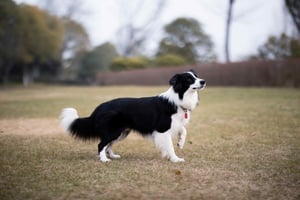Potty training your 11 week old puppy can be a daunting task. It takes patience, dedication, and...
Biting Puppies Training Tips: How to Stop the Unwanted Behaviour
Training puppies not to bite is one of the most important tasks for owners. It can be a daunting task, but with the right techniques and strategies, owners can successfully train their puppies not to bite. This article provides tips on how to stop puppies from biting, including positive reinforcement, redirection, and teaching bite inhibition.
Understanding Why Puppies Bite
Before beginning any puppy training, it is important to understand why puppies bite. Puppies bite for a variety of reasons, including teething, exploring their environment, playing, and seeking attention. It is important to remember that puppies are not trying to be aggressive when they bite; rather, they are trying to communicate with their owners. Therefore, it is important to be patient and gentle when training puppies not to bite.
Positive Reinforcement
Positive reinforcement is one of the most effective methods for training puppies not to bite. This approach involves rewarding desirable behaviour with treats or praise. For instance, if a puppy stops biting when given a verbal command, the owner can reward the puppy with a treat or verbal praise. This encourages the puppy to repeat the behaviour in the future.
Redirection
Redirection can also be an effective way to train puppies not to bite. This involves redirecting the puppy’s attention away from the undesirable behaviour and towards an acceptable activity. For instance, if a puppy is biting furniture, the owner can offer the puppy a chew toy to redirect its attention away from the furniture. This technique can be used to discourage puppies from biting furniture, people, and other objects.
Teaching Bite Inhibition
Bite inhibition is another important part of training puppies not to bite. This involves teaching puppies to be gentle when they bite. This can be done by yelping when the puppy bites too hard, or by offering a chew toy to redirect the puppy’s attention away from the undesirable behaviour. Teaching bite inhibition is an important part of training puppies not to bite, as it helps to ensure that the puppy does not become overly aggressive.
Conclusion
Training puppies not to bite can be a challenging task, but with the right strategies and techniques, owners can successfully train their puppies not to bite. Positive reinforcement, redirection, and teaching bite inhibition are all effective methods for training puppies not to bite. With patience and consistency, owners can successfully train their puppies not to bite and ensure that they grow up to be well-behaved, obedient dogs.



